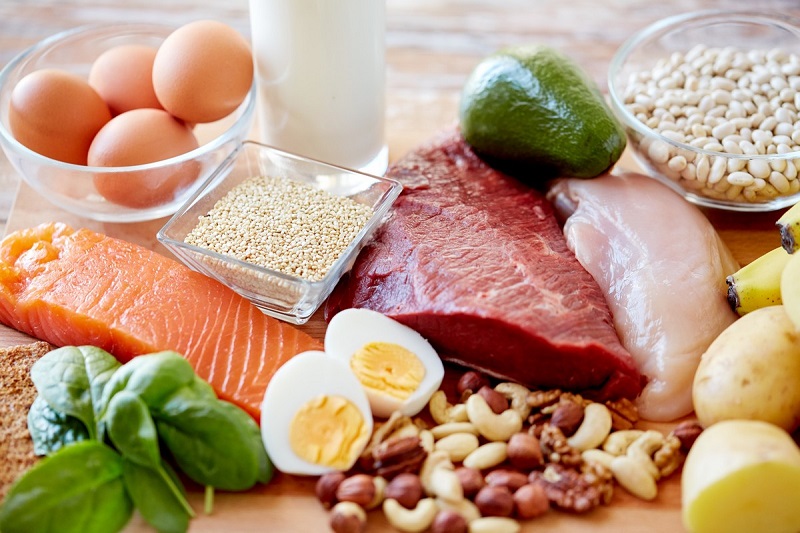Do you remember the war on fat? For years, the medical community has said that fats were our enemy number one, responsible for all manner of disease and that they went absolutely reduced. Heedless of the fact that calories taken with fat reduction were often retrieved with sugars, doctors have promoted for years the reduction of fat almost like a magic mantra to lose weight, prevent heart attacks, to reduce the risk of cancer.
At that time, few people were questioning if indeed the scientific data would confirm this thesis. As often happens in the history of science and medicine, the majority of experts do not necessarily supported the most correct theory but merely the most popular.
Similarly, for years doctors have suggested that muscles and brain serve sugar and that these differences do not hurt themselves, but are essential to feel energetic. So, on with pasta, bread, pizza, croissants, various cakes but, for heaven’s sake, no butter!
The emerging picture today is very different from that advocated for years and is now so strong that no one can, in good conscience, continue to deny it: fat not only do not hurt but they are essential for optimal health, even in moderate doses in their saturated version.
To observe the current fashionable crusade against the proteins seem to relive the history of fats. When we hear from ordinary people on the street “now everybody knows that the proteins are bad” is really to worry about! I remember how many times I’ve heard triumphantly from people who ate in a very bad way, “I do not assume anything of fat.”

The war against the proteins will fleeing result of the fight against fat: at some point, you will recognize that proper intake of protein is essential for our health.
As for fat, even for proteins, the data to support this are all already at our disposal.
The word protein comes from the Greek and means “of prime importance.” Indeed, they are essential to a long series of reasons of which I quote only the main ones:
- Our body is made up largely of proteins
- Many hormones are proteins
- Dietary proteins give a sense of satiety much more of other foods
- Protein foods have a significant thermogenic effect (100 kilo calories to metabolize protein they already consume 25)
- The proteins taken with food are indispensable for the maintenance of muscle mass and loss of muscle mass is one of the factors that triggers and accelerates the aging process.
What to do then in everyday life? There are two aspects that must be taken into account and that instead are often confused …
1. The correct daily dose
The total amount of protein taken in a day depends on the level of physical activity. We talk about 0.8-1 gram per pound of weight in sedentary, 1-1.5 in active and sports people and up to 2g in athletes. Some scientific societies suggest getting to 1.2g once exceeded the 60 years just to allow greater support for the muscle mass. Many foods contain protein but they are the food of animal origin to have the highest concentration. Moreover, in these food proteins contain the optimal amino acid profile that from a higher biological value. It does not mean you cannot also take plant foods rich in protein such as legumes or pseudo-grains like quinoa. It should however be kept in mind that these always also provide many carbohydrates and are not complete for what concerns the profile of amino acids.
To complete the deficiencies should be associated with other foods such as whole grains. In doing so, however, they combine two very foods rich in carbohydrates which makes meals often unbalanced in terms of macro nutrients. The calculation of protein requirements should be done by a doctor and can be determined based on the tables of nutritional values of foods. There is no data to indicate a hazard or for the kidneys or the liver to use the correct quantities of protein. The alleged damages are another example of a non-scientific thought: if the diseased kidney disease have to reduce, protein will mean that the proteins are bad for the kidneys. No it does not. Moreover, it would not be absurd to suggest not to sit on the chairs because a broken chair does not take the weight of a person?
2. The origin and treatment
Most importantly for our health is to choose well the protein. The type of protein food, processing and cooking make a big difference. The meat used for example (sausages, sausages, salami, sausages, canned meat) are no doubt also by limiting the content of sodium and preservatives. The red meat in general should be chosen on the basis of the animal’s breeding methodology. An animal bred to pasture provides a very different flesh from a similar animal reared intensively and fed grain. Red meat should then be eaten raw or cooked very little because its exposure to high temperatures produces potentially carcinogenic amines. It is advisable not to exceed 400 grams per week. Poultry should choose organic, grown in the ground naturally. Eggs, these biological, are an excellent source of protein, falsely demonized over the years more for the famous fight against fat. In most cases they do not create any problems if taken in the context of a healthy diet. The fish should be the prime source of animal protein for the intake of omega 3. Better to choose small fish (less polluted) and fished.
Legumes can certainly be part of protein intake and, for those who eat milk and dairy products, including cheese if taken until after the meat or fish but in their place. In those who have to reach high daily intakes because of intense physical activity, it becomes useful to include supplements such as protein powder whey. These not only have an optimal bio-availability to help in the muscle recovery but are healthy in a broad sense because they stimulate the immune system through active peptides.
There is therefore no reason to eliminate all animal proteins (except for an ethical choice that should not be confused with a Healthy and if anything supported by advice that outweigh shortcomings). Instead, what should be done is to learn to choose the correct sources and identify the appropriate dose for your weight, activity level and your age. Let us not be guided by trends and current thinking. Health must be long-term views.
The rate of aging in astronauts is incredibly accelerated: six months in orbit correspond to ten years on Earth. This acceleration is given to a large extent by the loss of muscle mass. To age well and live a full life until the end, we cannot overlook the importance of proper protein intake combined with regular physical exercise in maintaining our muscles function.



